#anti-kristoff
Text
Коротко об Анне и её парнях. С Гансом она запросто прыгает на крышу, ей даже не нужна его помощь, это жест очень обыденный.
С Кристофом она еле-еле залезла на скалу и совсем не сдвинулась. А если кто-то скажет, что на крышу ей было забраться легче, то во втором фильме она, одна, запросто лезет по скале, преодолевает большое расстояние.
Как вывод из этих значимых мелочей: Анне лучше всего одной, но всё же, Ганс принимает её такой, как она есть, ей не нужно казаться слабой рядом с ним, чтобы он выделился на её фоне. В то же время Кристоф словно все её способности (Анна умеет делать сальто, чёрт возьми!) забирает, ухудшает, чтобы он был заметнее. Более того, видит, что у неё (принцессы) ничего не получается, и бездействует вместо того, чтобы помочь.

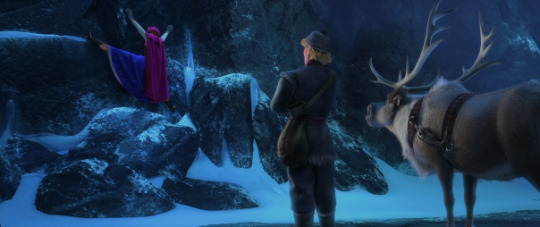

4 notes
·
View notes
Text
Any of you ever have a dream where Link (TotK) and Kristoff (Frozen) were being sold as anti-authority action figures or is it just me?
#tbh link would be anti authority if his wife wasn’t the authority#oh shit same with kristoff I just realized#link totk#link#tloz#zelda#breath of the wild#legend of zelda#the legend of zelda#tears of the kindom#tears of the kingdom#totk#loz totk#totk link#zelink#kristoff#frozen#disney frozen
44 notes
·
View notes
Text
Is there anyone on this platform with whom I can talk about the Nevernight series? Or are y'all silenced under the dictatorship of cancel culture?
#fandom#rambles#books#fantasy books#unpopular opinion#unpopular take#nevernight series#nevernight#mia nevernight#jay kristoff#godsgrave#darkdawn#anti cancel culture#fantasy#mia corvere
5 notes
·
View notes
Text
Stranger things frozen au
Just a heads up before I start. I just want to say. Yes I headcanon Elsa as asexual. And I think Jane is straight. This is just who I think matches up with the personalities and story importance. Anyone taking this as “evidence” that I don’t ship mileven anymore is going to get blocked. Does everybody understand that? Good. Then let’s begin.
Jane. Elsa
Max. Anna
Lucas. Kristoff
Dustin. Olaf
Troy. Hans
Carver. Weselton
#stranger things#frozen 2013#jane hopper#queen elsa#max mayfield#anna of arendelle#lucas sinclair#kristoff bjorgman#lumax#kristanna#dustin henderson#olaf the snowman#anti troy walsh#anti hans westerguard#anti jason carver#duke of weselton
3 notes
·
View notes
Text
I didn't even watch "WISH" yet because in my country it will only be available at january, but people are saying it's a bad cliche so I probably won't watch at the cinema.
The thing is, even though I am a hopeless romantic, not everything has to have romance. There are princess who are perfectly fine without a prince, like Mirabel, Elsa, Merida, Moana and Raya(I do kinda like the idea of Raya with a girl, just not Namaari). But we were so robbed of seeing Asha and the star boy(he is literally a staR so I don't doubt Disney would call him StaN or something like that, so his name is Stan from now on, I am gonna call him like that, is easier than star boy). Asha and Stan had the potential to be the next Tianaveen and Rapunzel&Eugene (I don't know their ship name). The concept arts are the cutest thing I have ever seen. Also "At All Costs" (bop) would have been a love song between the two!!! Them singing it man. The pain I will feel when I don't see them passionately sing it, very "I see the light" coded, in the actual movie. Somehow, now is not feminist for a strong female character to have a male partner by her side. Like...This doesn't make sense! You can be a strong female character and have a man at the same time! Have y'all forgotten Mulan and Shang? Anna and Kristoff? Ariel and Eric? Jasmine and Aladdin? (There are more examples and I could go on all day, but you got what I meant already) I hate Disney for throwing good ideas at the trash and playing safe just for money(like Hobie Brown/Spider-Punk said "it's a metaphor for capitalism"). And as the guy looked blonde with blue/green eyes in the arts I have seen, and Asha is a black latina, they lost the opportunity of having a biracial couple ACTUALLY DONE RIGHT (Pocahontas and John Smith don't count, he is a collonizer with the most common name in the world, she deserves so much better). Like, if the thing is show how inclusive you are by having a black latina female protagonist for little girls to see and feel represented in a good way, you could have increased that feeling by making someone fall in love for her. Little girls would feel like they are beautiful and desired/desireable in a positive way and that they worthy of being loved and love and be with whoever they want to be with, even someone who has a different skin color.
I am also mad because we could have seen Disney's first evil villain COUPLE with King Magnifico and his wife, the queen(still don't know her name, sorry). Can't you guys imagine the HITS, THE FIRST PLACE OF BILLBOARD HOT 100 WORTHY songs, they would proportionate us? Even if only one song, it would be enough for me. But someone thought having a female villain would be anti-feminist and they discarded an original and authentic idea, which is what Disney built its empire on the first place. Come on Disney minorities don't want to be portrayed as those unrealistic superior beings, they want to be portrayed as real human beings with emotions, struggles, qualities and flaws. Having an iconic female villain like you guys always had(like Maleficent, Cruella De Vil, Ursula, Mother Gothel, Lady Tremaine, etc) and set her up with an iconic male villain(like Gaston, Doctor Facilier, Shan Yu, Jafar, Hans, etc) it would have been top notch, god tier. King Magnifico and the queen could have been like the Gomez and Morticia of evil. You could address so many topics by it. Like the kingdom being ruled by evil would have been a great social critic of some politicians out there, for example. And we could have had an iconic final boss battle between Asha and Stan VS Magnifico and the queen.
Anyway, what I mean by this is that if someone has fanarts or just ANY CONTENT, of Asha and Stan, tag me, reblog this or comment, I don't care, just warn me, because they are my new obsession. I will also write a fanfic about this movie with these ideas, but only after I have watched the movie so until them, please feed my hyperfixation in Stasha (Star boy/Stan×Asha), I'm begging y'all
#disney wish#wish 2023#princess asha#wish asha#king magnifico#asha x star#asha x star boy#asha x stan#asha x star guy
60 notes
·
View notes
Text
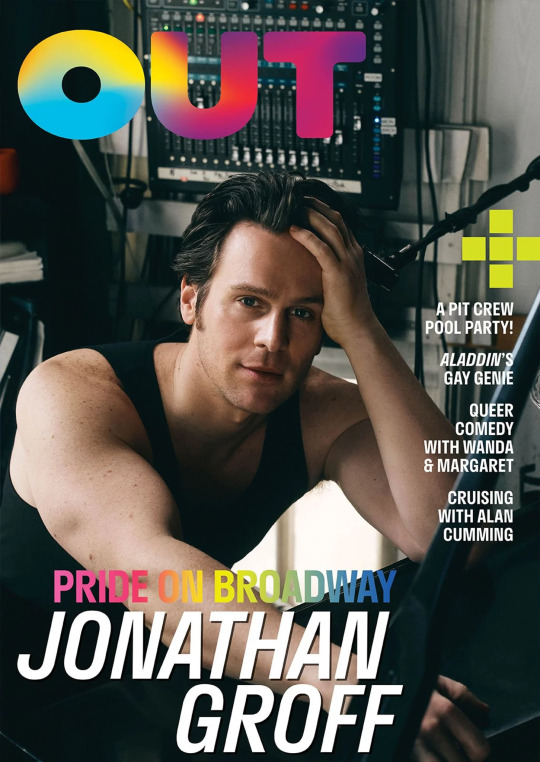
Excerpts:
It’s a personal story for Groff, who relates to Frank’s interior life and how others (don’t) respond to his struggles. For example, his showbiz peers suggest he take a vacation in response to a tearful breakdown. “No one wants to really make space for Frank’s darkness or his pain…that feels so familiar to me,” Groff says. “It feels very gay. And then there’s also something about it that feels quite American of like, just…take a little trip, and then you’ll come back, and you work, and everything will be fine. But there’s not a real investigation of sadness or despair.”
Merrily is personal by design — for actors and audience members alike. Groff quotes the musical’s producer, Sonia Friedman (and sister to Merrily’s director, Maria Friedman): “There are certain shows that are beyond theater, and this is one of them where you want the audience to follow the characters’ stories. But you want them to also reflect on their own lives as well as this, because [the show] keeps saying, how did you get to be here?”
It’s a question that Groff contemplates as he journeys backward in time each night at the Hudson Theatre. Like Frank, the 39-year-old has two decades of career and adulthood to reflect upon. He marvels how the teen reading a Sondheim biography in front of his high school science fair project went on to garner three Tony nominations (for Merrily this year, Melchior in Spring Awakening in 2007, and King George III in Hamilton in 2016), voice Kristoff and Sven in Disney’s hit Frozen films, and lead the groundbreaking HBO dramedy Looking as Patrick.
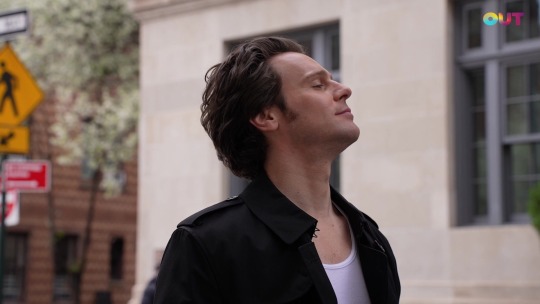
Outside the spheres of musical films and theater, Groff has broken ground as a gay actor by starring in the Netflix crime thriller Mindhunter as Holden Ford and in The Matrix Resurrections as Smith. He was also a lead in M. Night Shyamalan’s Knock at the Cabin last year and will appear in the new season of Doctor Who — starring Ncuti Gatwa as the first Black queer star of the long-running British sci-fi series. “He’s a supernova of talent,” Groff sings of Gatwa; an It’s a Sin fan, he also jumped at the chance to work with Russell T Davies after the showrunner personally invited him to join the season.
This enviable acting career is not what Groff envisioned when he came out publicly in 2009 in an interview with Broadway.com. “I would rather be myself and be in a relationship and not have that compromised by this career thing,” he recalls reasoning at the time — effectively choosing to be himself openly over the possibility of becoming a leading man.
“I felt like I was opting out of that [star] trajectory because of coming out,” he says. “And so everything that’s happened to me with the success of film and television has been a complete surprise to me because I thought…by coming out that that was impossible.”
Groff credits his coming out with saving him from becoming a Frank, who makes a devil’s bargain for material gain. In fact, by appearances, Groff is an anti-Frank. To wit, he arrives via bicycle to his Out photo shoot at the Duplex gay bar in the West Village. He says he even favors riding a bike to the theater each day over an offered car service. Later at Julius’ around the corner, he takes a bite (and then finishes) a burger prepared for a photo op, and then thanks the owner and chef by name. So not the stereotypical fame monster.
“Being gay has allowed me to forge my own path,” he attests. “I don’t feel at the mercy of the traditional Hollywood machine because I never really felt like I fit in there. That equation wasn’t where I lived. And so I’ve just been sort of over here following my artistic heart, which was a choice I made long, long ago. I sort of credit that for not buying into the stuff that Frank in the show kind of buys into.”
Groff calls his success in the entertainment industry “a lucky gift of timing,” noting how he came of age at a turning point for gay acceptance in America — and after the worst of the AIDS crisis in NYC. His speech following each Merrily performance helps raise funds for Broadway Cares/Equity Fights AIDS, and it “means so much” to him because he is mindful of “all of the gays that came from small towns to move to New York to do theater and how many of them died.” Groff was born in Lancaster, Pa., and was raised amid Amish communities before pursuing his Broadway dreams in the Big Apple.
As a working out actor, “I feel so lucky and I feel some sense of responsibility, of really breathing it in and taking it in,” he confesses. “Even 10 years ago, I don’t know if I would have been cast in this role of Frank, ’cause even in theater, it’s such a straight character.… There’s also something that feels like a shift in the times that’s allowing me to play this role right now as well.”
His casting in such a diversity of roles on stage and screen “feels a part of this wave of progress of people being not only accepting of actors being out, but of actors being able to play multiple different things and not get so pigeonholed…. I’m so grateful to be living in this time.”
Like Patrick, Groff feels like he’s ready for love, in part because Merrily sparks “reflection and embracing an ownership of the past to cross through into the future.” By chance, the same night this writer saw Merrily in April, Groff’s first boyfriend, celebrating a birthday, was also in the audience.
Groff recalls how, at 3.5 years, this relationship remains his longest to date — and one that occurred at a crucial period in his career. Groff dated him from ages 19 to 23 when they were still closeted yet lived as roommates in midtown Manhattan. His ex, who he did not name, is a dancer who helped teach him the choreography for Fame at Crunch Fitness; Groff played Nick Piazza in a regional production at North Shore Music Theatre in Massachusetts. “I was so slow at picking up choreography,” he confesses. But the fancy footwork made a lasting impact. Fame led to Groff being signed by an agent, his membership in the Actors’ Equity Association, and his Broadway debut as an understudy for the lead role in 2005’s In My Life. A year later, he was appearing in Spring Awakening.
“There was something about having him at the show last night,” says Groff, calling it a “full-circle moment.” He adds, “I’ve been single now for a couple of years and I’m feeling…ready and open for anything. If that’s continuing with that, if that’s a relationship, I’m cool with that.”
In addition to the occurrence of a rare NYC earthquake, the day of this Out interview marked another fateful event: the 63rd anniversary of Barbra Streisand making her TV debut on The Tonight Show. Groff appeared on The Tonight Show Starring Jimmy Fallon to commemorate the occasion. But his Barbra standom doesn’t end there. The actor wants to one day buy a Village restaurant called & Son Steakeasy, which used to be the site of the Lion, a gay bar where Streisand first sang publicly during a singing contest (according to a plaque there, at least). His goal is “turning it back into a gay bar and calling it BARbra.” A neon “BARbra” sign even hangs in his Merrily dressing room as a reminder of this dream.
Other dreams are poised to come true as well. Merrily’s revival is one of the biggest hits on Broadway right now, boasting sold-out shows and one of the Great White Way’s highest ticket prices. It also received seven Tony nominations this year, among them nods for Groff, Radcliffe, and Mendez.
Groff has been Tony-nominated twice before, but the theater world’s highest honor has lost some of its luster from the days when, post-high school, he taught a class on the Tony Awards at a theater camp. (He’d show clips to his pupils and have them vote for Best Actress. Wicked and Avenue Q were contenders that year.)
“When I was a kid, the marker of success was like an Oscar or a Tony or like whatever the award was,” he says. “Now I understand 20 years later that that’s a fun part of the game of it all. But it’s not what makes your artistic heart sing.”
The eschewing of awards recognition is also very anti-Frank. However, Groff also recognizes the importance of a good speech, like the “beautiful and touching and inspirational” words for the LGBTQ+ community that Hamilton’s Lin-Manuel Miranda gave at the Tonys after the Pulse nightclub shooting. If he has the opportunity to give his own remarks onstage, “I’ll attempt to honor whatever is happening in that moment,” he promises.
For now, Groff feels like his character at the end of Merrily, as three starry-eyed young friends look to the skies and imagine what dreams may come. “We gotta be the luckiest people who ever lived,” he quotes.
“I feel that. I really like to be living in this time and working in this way,” he says. “It’s more than I ever could have dreamt of. And so I just wanna soak it in, take it in, and keep going.”
31 notes
·
View notes
Text
What kinds of Queens/rulers do I think the Disney Princesses may become
. Snow White : Definitely one of those rulers thar have immense popularity with the public, and also committed into campaigning against fantasy racism, and also becomes a patron for churches and orphanages
. Cinderella : Becomes immensely popular with the public, and becomes skilled in diplomacy and patronage of churches, orphanages and art related establishments
. Aurora : Similarly with Snow White and Cinderella's case, and also boosting diplomacy ties between faerie and mortal Realms around her
. Ariel : Defo boosting diplomatic tirs between Atlantica and her and Prince Eric's Island Duchy....and also becomes a patronage for music and arts
🤩🤩🤩🥺🥺🥺
. Belle : Definitely commits to improving rural areas and encourage literacy and education in women and rural areas. She also defo committed to diplomacy and patronage of libraries and arts
. Jasmine : Similar case wirh Hurrem Sultan, Lucrezia Borgia and Cleopatra VII. Jasmine defo also goes for the ' I can sword fight, but I don't have to ' similarly with Padme Amidala. She also defo do patronage of culture and the arts, and orphanages and Mosques, and she defo be often using her strategy and scheming skills and her charisma to her advantage
. Mulan : She technically becomes a Princess after marrying with Shang. However, as she becomes a Princess after marrying into the Northern Wei Imperial Household, she basically handles with diplomacy and at times military related matters, and works to boost women's literacy and such and Imperial defense related matters
. Pocahontas : She technically intermarried to English nobility sometime after she and John Smith first meet in person. However, she basically does boost the activism for the indigenous peoples, helps with British - American diplomacy related matters, and does patronage of nature reserves
. Kida : Defo becomes committed to rebuilding and preserving Atlantis and Mayan culture, becomes a patronage for museums and orphanages and temples, and at times leads fleets to battle
. Maid Marian : As she and Robin Hood eventually becomes a Baron and Baroness of Sherwood, Maid Marian becomes a patron for orphanages, the arts and churches, and committed to diplomacy and defending her Barony state
🤩🤩🥺🥺
. Elsa : Defo be a more diplomatic and strategy geared ruler. Also an ' I can swore fight, yet I don't gave to ' cases. Committed to patronage of the arts and cultures, ans churches ans orphanages. And boosting literacy of women and children
. Anna : Similar xase with Elsa ans also focuses on boosting harvest related matters in Arendelle. She and Kristoff often be strategizing together and planning events together
. Malina : She also is one of those ' I can sword fight, but I dont have to. ' cases. As she becomes an Empress of Incan Empire, she is committed into boosted diplomacy and trade within the Incan Empire ans beyond. Oh, and often be scheming and strategizing together with Kuzco
. Merida : Becomes a more battle geared queen similarly with the case of Queen Hippolyta and Queen Gorgo of Sparta. Aside from leasing fleets to battle at times, she is also committed to diplomacy and cultural patronages. So basically a mix of her parents' ruling styles
. Rapunzel : Becomes a more trade and cultural geared ruler. Also an ' I can sword fight, yet I don't have to ' case. Committed to patronage of arts and orphanages and churches. Also enjoys handling diplomatic related matters
. Tiana : Even though Naveen abdicated from his Pfincely title, he and Tiana are still considered members of the Maldonian Royal Household. Aside from running her restaurant enterprises, she becomes committed to diplomacy, cultural patronage and basically becomes an advocate for anti segregation.
. Moana : Also one of those ' I can sword fight, yet I don't have to ' cases. As becoming a tribal chieftess, she is committed to the trade and agricultural related matters, and passionate about diplomacy and seafaring. Oh and she defo be onto patronage of arts and cultures
🤩🤩🤩🥺🥺🥺
#disney princesses#snow white#cinderella#aurora#ariel#belle#pocahontas#jasmine#maid marian#elsa#anna frozen#malina#kida#tiana#rapunzel#merida#moana
45 notes
·
View notes
Text
The southeastern anti-missile battery got vaporized by what I assume was a missile. So maybe you might wanna note in your report that those things don't, you know, stop missiles.
— Ezra Mason, Illuminae, book 1 of The Illuminae Files, by Amie Kaufman and Jay Kristoff
21 notes
·
View notes
Text
"Fixer Upper"'s Kristoff, a free spirited kind of anti social autistic lover of nature with ice as a special interest could match with F2 Elsa and the Enchanted Forest, frankly. Kristelsa has never been more close.
#kristoff#fixer upper#kristelsa#Im mostly joking but...#this book is a good insight in his character#I dont quite like that its stated so often that he must sacrifice to be with Anna#fixer upper of arendelle
18 notes
·
View notes
Note
Omari basically like the anti hans. He liked asha and as you said before genuinenly have rosas people best interest.The starboy as asha love interest nah i'm good come give black girl love interest who is not white coded give them black love interest hispanic love interet asian love interest indigenous love interest. Ethnic love interest not basic white boy love interest
He's also a bit of an antithesis on Eugene and Kristoff in while they were loners by choice and didn't get along with their love interests at first, Omari instantly gets along with Asha and tries to find his place among The Teens because he is that desperate for interaction beyond elders of the royal court and his controlling uncle.
And yes Omari was always meant to be black because for all of the cartoontwt's screaming about Disney not taking risks anymore they're sure obsessed a white boy. A black prince is a huge gamble.
5 notes
·
View notes
Text
Думаю, все в фэндоме знают статью про идеального Кристофа - полное лицемерие. Все фаны Кристофа просто хотят Анну, как приложение к нему, но при этом, они же твердят, что это история о двух сёстрах.
Просто, я подумала, а чем всё то, что было с Гансом отличается от того, что у Кристофа? О Гансе говорят, что это было жестоко, оставить Анну умирать и пытаться убить Эльзу (на всё это у него были причины, но сейчас не об этом). В то же время Кристофу разрешается перетягивать всё внимание Анны на себя, когда Эльзе (не без причины) требуется помощь сестры, он же идеал, так что, может позволить себе творить любую херь. При чём, Анна была права: Эльзе была нужна помощь, и Эльза действительно погибла - беспокойство Анны было не зря, но это назвали созависимостью, а поведение Кристофа во второй части, которое кричало о созависимости и одержимости, поведение идеала. Он своим одержимым поведением избавил королевство от Эльзы, и Анна умерла морально, узнав о потере сестры.
Всё время кажется, что будь Ганс на его месте, то и вторая часть вышла бы ярче (Кристоф даже как просто персонаж - никакой), и он бы принимал желания Анны, как делал изначально, и не стал бы давить, не давая сёстрам побыть наедине. И эмоциональная близость у них была бы только крепче (а то у Кристофа и здесь пусто, ничто не наталкивает на то, что он действительно жил с Анной под одной крышей несколько лет).
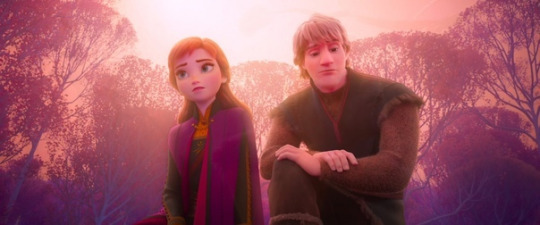
#frozen#frozen 2#prince hans#prinsess anna#hansanna#elsa and anna and hans#anti kristanna#anti-kristoff
3 notes
·
View notes
Note
Hi 🍁 so you've listened the complete Forces of Nature series? I'm surprised that you said it's the worst installment into the franchise. It's because Snow Sisters and Kristanna were in the background or the solution of the story was unsatisfying? The theme of trust and Otherness of Arendelle sounded interesting. And how do you think, what of these elements/motifs can be transported in F3? I don't mind conspiracies :}
Yes - I have access to it for a short time on Wonderly+, where it was released early before October 11th.
Ok, I have to admit, saying it's the worst installment was probably overexaggerated on my part. It is fun for what it is, and I'm sure many fans of all ages will find things to love about it. And as I said, everyone should give the podcast a chance regardless of my own opinions.
However, I think I was just taken aback by how much Disa and Wolfgang were forced into the narrative when we have plenty of established characters (Anna, Elsa, Kristoff, Olaf, Mattias, Ryder, Honeymaren, and Yelena) that could've had an opportunity to have some fun side content here that was instead given to these two new characters. I get it - they don't want to add new things or lore to the characters because it's a bit restrictive. However, you can easily take what is already established and build a nice, satisfying side story. Forest of Shadows was able to get away with adding depth to Anna and Elsa that didn't interfere with their developments in Frozen or F2. Why can't we do this here?
Example - why couldn't Ryder have Wolfgang's role instead? Imagine Ryder trying to explore and understand Arendelle, building a relationship with Kristoff and Mattias, while having solo episodes writing to Yelena about his experiences. Or, imagine Honeymaren grows an interest in Automatons, but then she and Elsa clash a bit about experimenting too much with them (adding depth to their relationship). Or how about Anna encountering other royals who feel strongly about Arendelle's magical allegiances, leading to Anna having to build the confidence to stand by her sister and the Northuldra. More about Kristoff learning to be a leader. Or maybe Olaf actually being the character to write an opera over Wolfgang. There is so much content you could explore with the characters we already have that introducing new ones just seems like a huge waste.
And how do you think, what of these elements/motifs can be transported in F3? I don't mind conspiracies :}
Well, either the elements introduced were just unique to Forces of Nature and the writers just didn't flesh them out well, or it's possible that they are not explored in depth because they are hints to what we could expect in F3.
Anna faces people who question Arendelle's allegiance to magic, testing her confidence as Queen and the strength of her relationship with Elsa and the Northuldra. Elsa grows a fear of trusting new people, as the fear of magic can cause a lot of damage (both Elsa and the Nprthuldra know this too well). Kristoff learns the skills necessary to become a leader himself since he is one day going to rule beside Anna. Trust seems to be a big deal in this podcast, and these elements (whether it is the trust of oneself or others) and if it continues into F3, then we're basically looking at -
F1 - Fear vs. Love
F2 - Fear vs. Change
F3 - Fear vs. Trust
But again, it's just a crazy theory. Cough cough cough also, trust being a thing can lead to Hans showing up again as an anti-hero or villain that the heroes either need to learn to trust or he takes advantage of the trust of others cough cough cough. Wow. What a crazy cough. I need to get that checked out.
18 notes
·
View notes
Text
something will always fill a vacuum
(reposted, with edits, from Twitter)

Okay, let's talk about why attempts to critique (or hell, straight up stick it to) Christianity in SFF often end up being more anti-Jewish than they are anti-Christian.
This was inspired by Jay Kristoff's work, which manages to evoke a whole bunch of antisemitic medieval tropes AND, as a bonus, even shits on the name "Ashkenazi", which is the Jewish term for most European Jews. But the thing is, Kristoff's SO antisemitic that I don't think it's accidental. I'm more interested in how it happens out of ignorance rather than malice.
So, negative evocations of Christianity in SFF usually fall into one or more of three categories:
allegories for/evocations of the Inquisition
allegories for/evocations of witch hunts
Christianity without Jesus
I suspect there are also plenty of evocations of the Crusades out there, especially in SFF by non-Western authors, but I haven't seen it nearly as much. I want to be clear that these aren't usually discrete uses of these tropes. They usually blend together. Evocations of the Inquisition usually have evocations of later witch-hunts as well, and it's almost always Christianity Without Jesus.
I'm generally fine with using the Inquisition and the witch hunts as models for fictionalized versions of the church as a force for evil. They were Christianity as a force for evil in real life.
But they're often clearly written by people who haven't actually studied the periods in question before using them as a model--the Salem "witches," for example, were Christians, and not just women, and targeted more for financial reasons than religious ones. (Also, they weren’t burned at the stake, for crying out loud. You’re not the granddaughters of the witches they couldn’t burn. Like every word of that slogan is wrong.) But honestly, whatever. I’m not interested in holding fantasy to historical accuracy.
It's the way Evil Christianity Analogues are generally missing a Jesus figure that starts to make them problematic.
Much of the world's perception of Jews and Judaism is basically "it's like Christianity but without Jesus."
Attempts to portray Christianity Analogues as bloodthirsty and primitive generally assume that what's "primitive" is what's older.
They tend to distrust ritual, and portray ritual either as primitive superstition, or as a facade that the Evil Priests use to manipulate the Naive Villagers.
And you may think you're sticking it to Christianity by doing your fic with evil Inquisitors who burn witches, but when a hallmark of its evil is that there's no Jesus analogue, you're actually not sticking it to Christianity. You're reinforcing its supremacy.
Or put another way, the idea that if you remove Jesus, Christianity becomes evil is just the flipside of "REAL Christianity is inherently good."
If you're going to have masses and priests and Inquisitors and witch burnings and all the other specific trappings of actual Christianity, put a fucking Jesus analogue in there. Because it's not "religion", it's SPECIFICALLY THE RELIGION THAT WORSHIPS JESUS, that did all these things.
Cultural practices are not an equation
A lot of this comes from a very old anti-Jewish trope: the OT God=vengeful, NT God=loving rubric.
Now, I'm not going to spend a lot of time debunking that trope in this thread, other than to say that every single loving- or compassionate-sounding thing Jesus ever said is literally a quote or paraphrase from the Tanakh.
Yet there's a long-standing idea in pop culture Christianity that the problem with Christianity is the “Old Testament.” You hear it ALL THE FUCKING TIME on TV. Some bigoted Christian character quotes something from the OT and the hero says something like, "we've had a whole other testament since then."
So, the idea that if you do Christianity without Jesus, you get Bloodthirsty Old Testament Religion is a huge trope in...
<drum roll>
...Christian depictions of Satanism.
You know what I'm talking about, yes? Satanism as portrayed by Christians is missing Jesus, and usually involves a lot of animal sacrifice, and then human sacrifice, and often a smattering of Hebrew, that Ancient And Alien Language. Or sometimes Aramaic. (I could do a whole post about how weird Christians are about Hebrew and Aramaic.) So Satanism as imagined by Christians is intended to be a dark mirror of Christianity, and there are elements of that, in that there's usually elements from Catholic mass, usually some Latin.
But in essence, what they're creating is Ancient Evil Religion Without Jesus, which ends up looking a lot like what they tend to think Judaism looks like, or looked like back in the day. (Without the "Evil", of course, or at least without saying it out loud.)
animal sacrifice, which Jesus negated the need for
Hebrew as an ancient powerful magical alien language, rather than as, I dunno, the language of real people?
a vengeful and bloodthirsty deity figure, without a mediating savior
(BTW, I and plenty of other Jews I know have been asked, by apparently well-meaning Christians, how we handle sacrificing animals in contemporary America. I’m sure that if this post gets any traction, a bunch of Christians are going to respond that they know we don’t actually practice animal sacrifice and let me just go ahead and give you your gold star and your cookie and please note the giant eye roll accompanying said cookie and star.)
A little detour into the Satanic Panic
The attitude toward imagined Satanism, with its ritual and its sacrifice and its churchiness, looks a little different whether you're getting it from Catholics or Protestants.
With Catholics, it's "this is a mockery of the mass, which is why it's ritualized"
With Protestants, With Protestants, you get something a lot uglier. It’s “our Christianity is fresh and organic and flexible and real and just about a genuine relationship with God,” opposed to ancient, heartless, primitive, ignorant ritual like that in Satanism and Judaism and Catholicism
And of course, when actual Satanism as a practice became a thing, and not just a bogeyman in the fevered imaginings of paranoid Christians, it was primarily as a way to troll Christians. But it also pulled in a lot of really ugly white supremacist Victorian ideas about the occult.
It didn't start from what could we do to create a practice that actually highlights everything that's wrong with Christianity. You know, an actual satire of it. It mostly started with performing what Christians thought Satanism would look like. Trolling, as opposed to critique. It’s evolved since then and developed more into its own thing, and the point of this post has nothing to do with practicing Satanists, so I’m going to leave it there--this is just to point out that Satanism, full stop, both imagined and real, has always been something that exists inside Christianity, and is nonsensical outside/without Christianity.
So again, and I can't emphasize this enough: What Christians think actual Satanism would look like isn't a critique of Christianity. It's a reification of it. It's self-congratulatory. The Christian idea of Satanism exists only to enforce the “correctness” of Christianity.
You can see this because--edgelordery among heavy metal artists and edgy teenagers notwithstanding--there's nothing actually attractive about Christian depictions of Satanism. No one seems to be having any fun. There's no there there. I mean, Michelle Remembers, The Satan Seller, Rosemary’s Baby, Go Ask Alice, Satan’s Underground, The Omen, Eye of the Devil--in all the famous texts of the Satanic Panic, it’s remarkable how unpleasant and dreary Satanic practices seem to be. It’s hard to imagine anyone finding these practices enjoyable or rewarding. There’s a typical authoritarian Christian lack of curiosity about humans’ inner lives in these portrayals: no one’s asking why anyone would want to engage in these practices. It’s just some people are evil, end of story.
The entire point of Satanism in the Satanic Panic is to make Christianity look good.
It exists, in their imaginings, solely to mock Christian ritual, but like, no one actually wants to eat a host made of feces? No one wants to have unpleasant and ungratifying sex? It's just misery for misery's sake, which is what Christians panicking about Satanism apparently imagine non-Christianity to be.
Back to fictional Evil Churches
So when SFF authors/game devs/whoever want to worldbuild a fictional evil church, somehow it usually ends up being Christianity with a very conspicuously missing Jesus.
Obviously, a comprehensive survey is beyond the scope of this Tumblr post, but here are a few examples:
Shin Megami Tensei literally has a church that worships “YHVH,” an explicitly evil god. There’s no Jesus analogue.
The Church of Tal in Magic: The Gathering is full of hypocritical inquisitors who persecute magic users while using magic themselves. This is pretty obviously a dig at evangelicals who claimed M:TG was satanic in the 80s and 90s, but again, weirdly, no Jesus.
Final Fantasy X has the Church of Yu-Yevon, which of course turns out to be Bad. No Jesus.
Dishonored is an interesting example, since the Abbey of the Everyman doesn’t have a god--or rather, it’s designed to protect people from its god, the Outsider. But it’s got all the tropes of churchiness and the Inquisition, and of course, no Jesus.
The Deep Church in Dark Souls.
The Chantry in Dragon Age isn’t straight-up evil--they’re a positive force in some ways, but they're also Inquisition-y toward mages and straight-up evil toward the Dalish elves. No Jesus.
Mercedes Lackey’s various fantasy worlds usually have some analogue to Christianity (in the first of the Heralds novels, Talia, the main character, comes from a background that clearly draws from both evangelical Christianity and Amish/Mennonite/etc. tropes). There’s no Jesus analogue.
Hell, in Phillip Pullman’s His Dark Materials, the church is literally a Christian church. Like, it’s not a completely different world; it’s our world but a little different. And yet somehow Jesus is very absent.
David Eddings’ Church in the Elenium and Tamuli series isn’t terrible, exactly, but it bounces back and forth between corrupt and hapless. It’s pretty clearly Fantasy Christianity, right down to the scriptures and the clerical titles and the Vatican infighting and yet, no Jesus.
Terry Pratchett’s Church of Om isn’t wholly evil, but it’s a satire of overly “ritualistic” Christianity--ritual is sterile, ritual is a substitute for true belief--and causes a lot of war. No Jesus, of course.
Brandon Sanderson’s Vorinism arguably rushes right past the accidental antisemitism of “no Jesus makes you evil” into straight-up antisemitism, but that’s a whole other post.
I mean, look, I could make this list really long, especially if I wanted to get into “Evil Religions that do very Christian Inquisition things, but have a pantheon that’s loosely based on the Greeks or whatever,” and how they’re still very much cast in a Christian mold, but never have a Jesus analogue, but we’d be here all day.
If you’re not Christian, why do you think Jesus saved the world?
The point is, a lot of people doing worldbuilding want authoritarian priests and witch-hunting inquisitors and Women Wrecked The World patriarchy and abusive exorcisms of people who aren’t possessed and conversion therapy and all that. Some of them are Big Mad at Christianity, some aren’t, but either way, they believe they have something to say about the harm Christianity has done.
But the real-world people who did all the horrible things Christianity has done weren't practicing Christianity-but-without-Jesus. They were practicing Christianity full stop.
And yes, actual Judaism as practiced by actual alive Jews isn't actually anything that resembles Christianity, with or without Jesus. But the problem is, for most of the world, their understanding of what Judaism is is "basically Christianity, but without Jesus."
When you decide to do an analogue of Christianity to be the evil religion in your SFF/game, but you neglect to include *the central element of Christianity*, which is, you know, Jesus, what you're actually suggesting is that Jesus is the thing that redeems "Abrahamic religion." (BTW, stop using that term since y’all seem to use it to try to blame Jews and Muslims (and by extension, all the other Abrahamic religions that you don’t even seem aware exist) for stuff that is specifically and uniquely Christian.)
So if you think that Jesus is the thing that makes Christianity good, so much that you can’t imagine a Fantasy Evil Christianity Analogue that has a Jesus figure, what does that say about what you think about Jews?
If you're pissed at Christianity, and if you want to create an SFF setting that contains Evil Religion, why can’t you seem to bear to actually include a Jesus figure in your portrayal?
You’re actually reifying the idea that Christianity (”true” Christianity that actually worships Jesus) is uniquely and inherently good, and all the things you see as trappings of it (belief in a single God, ritual, tradition, sacred texts) are bad without Jesus.
So again, unfriendly reminder that the main Abrahamic religion in which Jesus has no place isn’t the one that did all the colonialism and inquisitioning and witch-hunts and swordpoint conversions and Crusades, and isn’t the one currently taking away your reproductive rights and putting torture of LGBTQ kids into law and trying to make it impossible to exist comfortably if you don’t believe as they do.
That’s all been the Jesus-people, not us.
Maybe think about that next time you’re worldbuilding.
81 notes
·
View notes
Text

#frozen#frozen 2#frozen 3#queen elsa#queen anna#kristoff bjorgman#prince hans#honeymaren#ryder#olaf#disney#disneys frozen#tumblr polls#elsamaren#helsa#iceburns#theory time
9 notes
·
View notes
Text
At first I was pissed that Dreamlight Valley forced the Frozen 2 fanfic timeline on players instead of making everyone happy sticking with the original, but then I thought "Omg they're giving me a chance to FIX it! I can bring Elsa home!"
Only for the game to go "No, actually, Elsa can come to your valley but she has to stay isolated from her entire family like she has the plague." Wtf? Kristoff, Anna AND Olaf get to live together in the castle both sisters grew up in, but Elsa has to be dumped all alone into some ice cave clear across the biome? She's already in the most boring outfit ever concocted by an anti-character-design committee and you hide her in a generic blob of a cave like she's some wompa on the planet Hoth? Why not just make her invisible next?
3 notes
·
View notes
Note
Back at you! Five favorite and five least favorite reads of the year
[rubs hands together gleefully]
My Top 5 Favorite Books of 2023
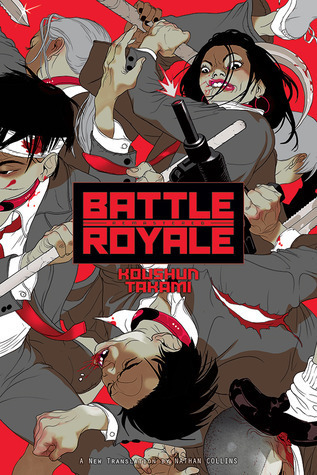
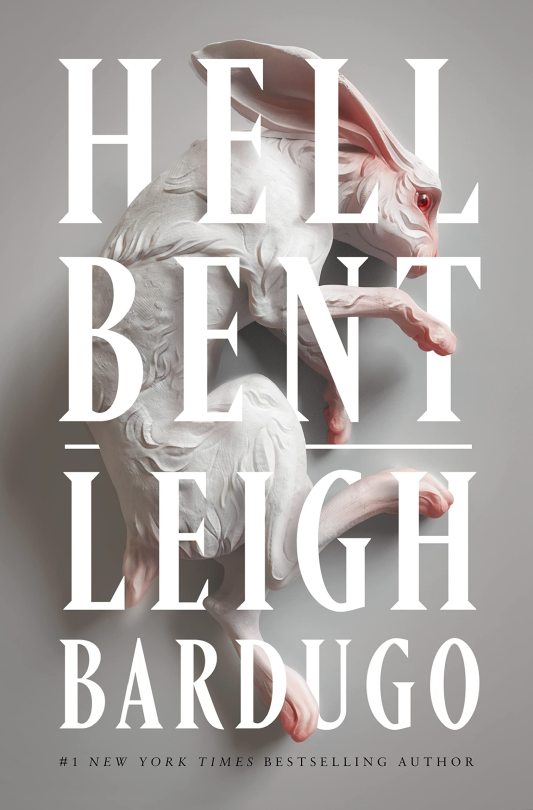
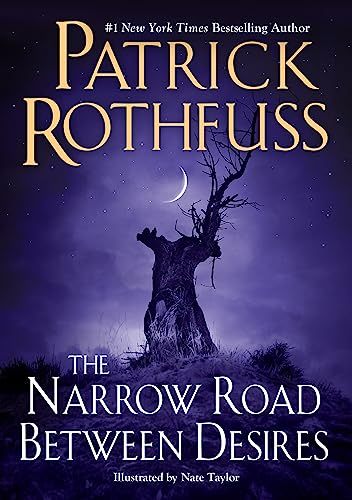
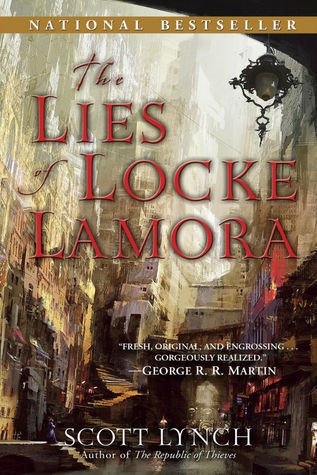
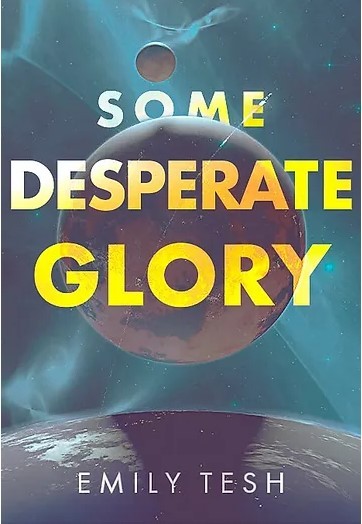
Battle Royale by Koushun Takami (translated by Nathan Collins) floored me with the depth of its personal character stories along with its understandings of humanity, desperation, and love. It's also just an incredibly engrossing and tragic thriller book that ends more hopefully than I ever expected. I avoided reading it for so long because I don't care for "violence of violence's sake" narratives that say nothing else. The gap between Squid Game and Saw is vast in my eyes, and while I didn't sob buckets like I did for Squid Game, the attachment I have to so many of the students in Battle Royale cannot be understated. It remains my favorite and most dynamic read this year.
Hell Bent by Leigh Bardugo took an entirely different direction than I anticipated or hoped for—and shockingly, the direction Bardugo took was better than my imaginings. I thought Ninth House was an interesting genre switch for her, but it wasn't my favorite by any measure. Hell Bent, on the other hand, said, "Y'all want demons? Y'all want deeper character bonding moments? Y'all want a journey to hell that is literally, symbolically, and cuttingly personal?" Also, Darlington was very hot, I'm going insane.
The Narrow Road Between Desires by Patrick Rothfuss reminded me not only how much I miss the Kingkiller Chronicle but also how much I love Rothfuss' musical writing. He also understands fae so deeply that it's a pleasure to read about my fae husband, Bast, and his bargains with the local kids. Bast is the perfect character to follow around for a day, embodying the whimsical and mischievous writing style Rothfuss employs, and the many illustrations throughout the novella were so lovely. This is my idea of a cozy fantasy story.
The Lies of Locke Lamora by Scott Lynch, boooooooyyy! I loved every part of this, but I didn't expect the book to be as genuinely funny as it is, no implied laugh-track necessary. Underground gangs and rogue shit will always capture my heart and intrigue if done well, and Scott! Lynch! never! missed! How Father Chains trained his thieves to steal from the rich to ???? Be little shits? Excellent! The romance friendship between Locke and Jean? Beautiful. The cat-and-mouse cons that increasingly go wrong? Incredible. The barrel??? Brutal, I'll never get over that.
Some Desperate Glory by Emily Tesh shattered my every expectation, and I gotta say, they weren't initially favorable. I thought, as a standalone, there was no way the book was going to do everything it claimed without pulling its punches and rapidly softening itself, and I was not only wrong; I was delighted. Hey, do you want to know what it's like to be part of a death cult? Do you want to follow a protagonist who sees herself as the model of this death cult and its bigoted society? Do you want to see how she fights, kicking and screaming, against the truth that upends her entire life until she can't deny it anymore? Do you want to believe in stories about redemption and people becoming their better selves? Do you also want a solid sci-fi story with aliens? Believe me, I am so happy that a sci-fi book made my favorites list this year.
Honorable mentions: The Poppy War (reread) by R. F. Kuang, Empire of the Vampire (new) by Jay Kristoff, The Stolen Heir (new) by Holly Black
My 5 Least Favorite Books of 2023

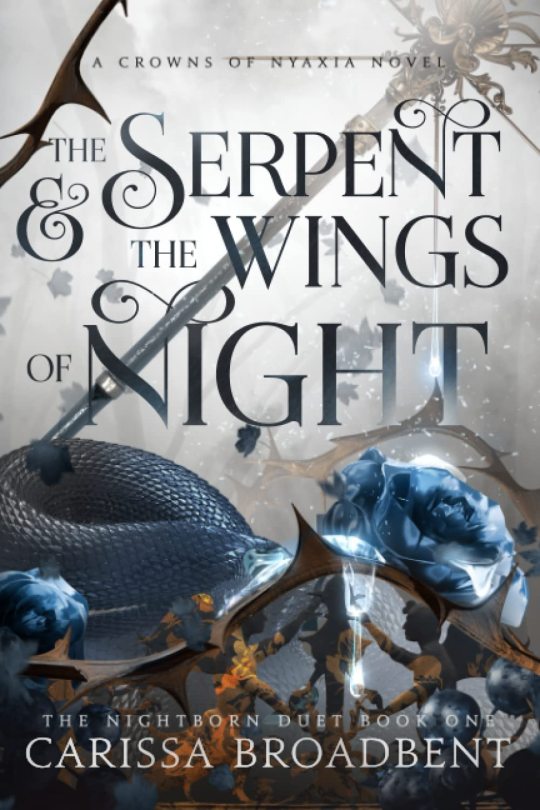
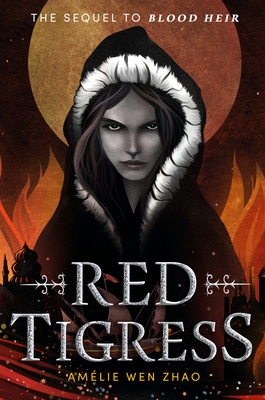

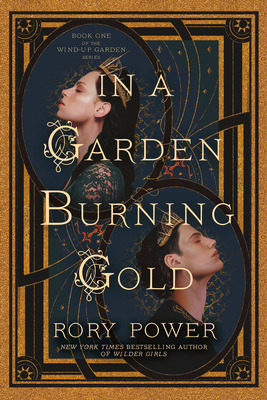
Seasonal Fears by Seanan McGuire is here because I am just. So. Disappointed. I adored Middlegame and still believe it to be one of the most technically impressive novels I've ever read. Seasonal Fears proved that Middlegame was not only a fluke but also that it should've remained a standalone. Melanie and Harry are insufferable protagonists, the plot meanders to such an anti-climatic ending, and characters I loved from Middlegame are here, not to help or to hinder, but to be the most annoying people on the planet. Giving my time and hope to this almost feels like a betrayal. I've just learned a third book is supposed to come out, and.... I can't do it again. I'm not strong enough.
The Serpent and the Wings of Night by Carissa Broadbent is BookTok mediocrity at its finest. As cumbersome as its title, the world-building and plot are each jokes I am not in on. People call this book "The Hunger Games with vampires," and I'm so sorry, Suzanne Collins. I'm so sorry people compared your thoughtful work to this hack job. In truth, Broadbent goes out of her way to distract the competitors of this "deadly" competition from going after each other to the death, especially her super-special human MC that can keep up with immortal beings no problem. It's full of insta-love and plot convenience, of telling without showing, of characters so stupid that none of them thought to bring poison weapons to the death game like the MC did, which you can also dip out on at night. When vampires are most active. It all culminates in 1-2-3 plot twists that are as laughable as they are story-breaking. See Battle Royale reigning supreme up there? Now look at this sad sack of shit. How could I possibly take this serpent girlie seriously?
Red Tigress by Amélie Wen Zhao is another that turned out to be disappointing and is the reason I won't finish the trilogy. While not having the most imaginative premise, Blood Heir at least proved an entertaining read, and I was invested in Ana's story, in her slowburn romance with Ramson, and in some minor characters who were introduced to have greater importance later. This YA novel also tackled the modern slavery issue that is human trafficking, and I was interested to see how the rest of the series would develop that conversation. Turns out, Red Tigress would not be doing that. It just became another shallow YA series that hand waves political alliances, the logistics of war, the necessity (or not) of a monarchy, and the justification of rebellion. It became a story where you Always Have a Choice, where the protagonists always have the Right information and make the Right decision (and that decision is always Good), and it stops asking realistic questions altogether. Oh, and then there's the intolerable Sorsha. Fire, murder, kill.
A Study in Drowning by Ava Reid is Ava Reid dumbed down for a YA audience. There, I said it. A Study in Drowning tries to be a lot of things. A gothic novel. A fairytale. A rivals-to-lovers romance. A feminist work about women reclaiming their stories from men. It succeeds at exactly none of these things. Its feminist messaging is so ham-fisted, countering acts of misogyny in a way that is so over-the-top because it can't afford you missing it. A shame that it calls so much attention to it because the novel crucially lacks meaningful female friendships, moments of female empowerment and growth, and true reclamations of agency. While I generally loved its imagery with water and rot, its protagonist was also a huge drain on my interest and patience. I almost DNF'd this, and I kinda wish I had.
In a Garden Burning Gold by Rory Power is... Well, I'll be honest. I have almost forgotten everything about this book; it was such a slog. The main characters weren't likable or interesting, even in their goals or relationships with each other. The family involved in this should've been my kind of messy, but it pretty much amounted to Dad Bad, Younger Brother Overlooked, Twin Siblings Important But Somewhere Else, Younger Sister Is Also Here? The world felt very small, the stakes present but not remotely urgent. The main characters were truly in their own heads so much that they missed all the warning signs that danced naked in front of them. There's a sequel and I don't know how or why.
Dishonorable mentions: Godkiller by Hannah Kaner, A Fire Endless by Rebecca Ross
3 notes
·
View notes